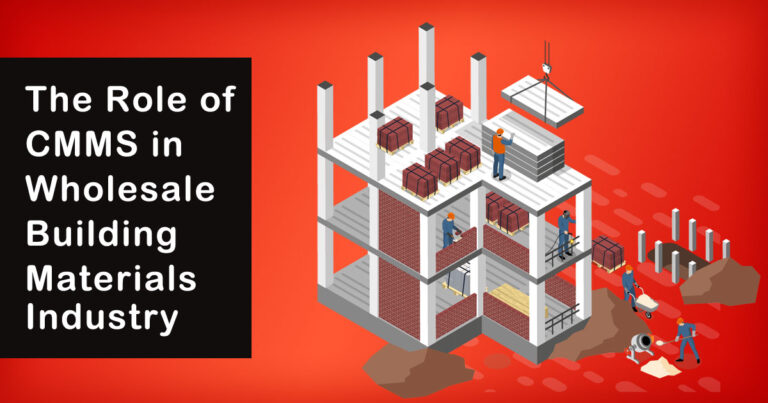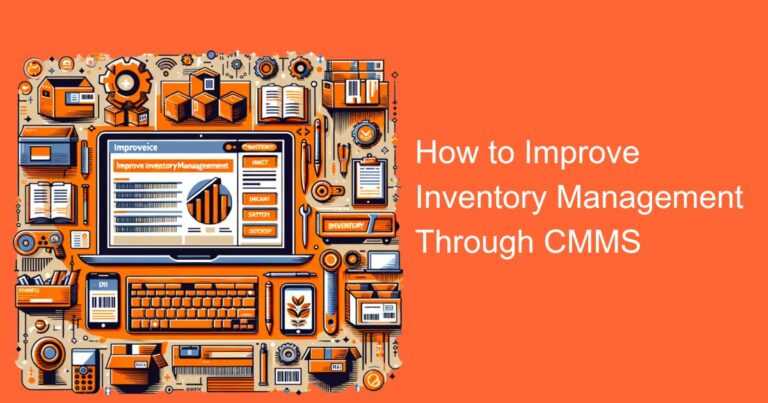Introduction
The retail apparel and fashion industry in India is a fast-paced and highly competitive sector that requires efficient management systems to stay ahead. One such system that has gained significant importance in recent years is the Computerized Maintenance Management System (CMMS). CMMS software provides valuable tools and functionalities to streamline maintenance operations, optimize processes, and enhance overall productivity in the retail apparel and fashion industry. In this blog, we will explore the role of CMMS in this context and delve into its benefits and implications for businesses.
Understanding CMMS
A Computerized Maintenance Management System (CMMS) is a comprehensive software solution designed to simplify and automate maintenance management tasks. CMMS facilitates the tracking and management of maintenance activities, including preventive maintenance, work orders, inventory management, asset tracking, and more. By leveraging technology, CMMS enables businesses to streamline their maintenance processes, enhance operational efficiency, and reduce downtime.
The Need for CMMS in the Retail Apparel and Fashion Industry
1 Equipment Maintenance:
In the retail apparel and fashion industry, various types of equipment are used, such as sewing machines, cutting machines, ironing machines, and more. Efficient maintenance of these equipment is crucial to ensure uninterrupted operations. CMMS helps in scheduling preventive maintenance tasks, tracking equipment performance, and generating alerts for maintenance requirements. By proactively addressing maintenance needs, CMMS minimizes equipment breakdowns and prevents costly downtime.
2 Inventory Management:
Retail apparel and fashion businesses often deal with a vast inventory of products, including clothing, accessories, and raw materials. CMMS allows for effective inventory management by tracking stock levels, automating reordering processes, and providing real-time insights into inventory status. This ensures that businesses can meet customer demands, avoid stockouts, and optimize inventory costs.
3 Store Maintenance:
Maintaining a pleasant and well-maintained store environment is essential for attracting customers and enhancing the overall shopping experience. CMMS enables businesses to manage store maintenance tasks, such as lighting, HVAC systems, plumbing, and other facilities. By tracking maintenance schedules, addressing issues promptly, and ensuring a clean and functional environment, CMMS helps create a positive impression on customers and improves brand reputation.
4 Compliance and Safety:
Compliance with regulatory standards and safety measures is crucial in the apparel and fashion industry. CMMS assists in monitoring and documenting compliance requirements, such as fire safety inspections, electrical checks, and equipment certifications. By providing automated reminders and tracking compliance activities, CMMS helps businesses meet legal obligations and maintain a safe working environment.
Benefits of CMMS in the Retail Apparel and Fashion Industry
1 Improved Efficiency:
CMMS streamlines maintenance processes by automating tasks, reducing paperwork, and providing real-time insights into maintenance operations. This improves the efficiency of maintenance staff, enabling them to prioritize and complete tasks promptly.
2 Increased Equipment Lifespan:
By implementing preventive maintenance schedules and regularly monitoring equipment performance, CMMS helps extend the lifespan of critical assets. This reduces the need for costly replacements and enhances the return on investment for equipment.
3 Cost Reduction:
CMMS enables businesses to optimize maintenance operations, leading to cost savings. By preventing unexpected breakdowns, reducing downtime, and optimizing inventory management, businesses can minimize maintenance expenses and improve their bottom line.
4 Enhanced Data Analysis:
CMMS software generates comprehensive reports and analytics on maintenance activities, equipment performance, and inventory management. By analyzing this data, businesses can identify trends, make informed decisions, and implement strategies for continuous improvement.
Conclusion
In conclusion, the adoption of a Computerized Maintenance Management System (CMMS) in the retail apparel and fashion industry offers numerous benefits and implications for businesses. CMMS facilitates efficient equipment maintenance, ensuring uninterrupted operations by scheduling preventive maintenance tasks and tracking equipment performance. It also aids in effective inventory management by automating reordering processes and providing real-time insights into inventory status. Additionally, CMMS helps businesses manage store maintenance tasks, create a positive shopping experience, and improve brand reputation. Moreover, CMMS assists in ensuring compliance with regulatory standards and safety measures, thereby maintaining a safe working environment. The benefits of CMMS include improved efficiency, increased equipment lifespan, cost reduction, and enhanced data analysis through comprehensive reports and analytics. By leveraging CMMS technology, retail apparel and fashion businesses can streamline maintenance operations, optimize processes, and ultimately enhance productivity and profitability. Therefore, investing in a CMMS system is a wise decision for organizations in this fast-paced and highly competitive industry.








